Good evening all! I’m not here today; instead, you can find me discussing The Broken Kingdoms by N.K. Jemisin with Jodie over at Lady Business! We had a fantastic although spoilerrific discussion, so don’t miss it.
|
||||||
|
I can’t do justice to this book with my review. It is simply incredible – moving, emotional, mythical, and simultaneously epic and close in scope at the exact same time. If I had to say one thing to you about it, I would say, please read it, it is incredible. Let’s start with the setting. The Trojan War is relatively familiar for people versed in mythology and literature; if not, I’m sure you’ve heard of the Trojan horse and the face that launched a thousand ships. This takes place around that war, primarily because it is there that Achilles will become a legend. This is The Iliad, but personal, close, and loving; for the first time I felt like I could understand Achilles and Patroclus’s relationship and just how they got to that final, brutal, excruciating point of both their lives. This is truly a fantastic retelling, one that manages to be both timeless and relevant. Achilles and Patroclus have existed for thousands of years in readers’ minds, but in our society today, many people wish that a relationship like theirs would not exist – a travesty, if you ask me – but a book like this demonstrates just how beautiful that relationship can be, and moreover, how appropriate. It’s partly a romance, writ large on the world stage as these two players tangle with gods and the most powerful of men. Speaking of gods, there are plenty here, and they walk the world right alongside the characters. Patroclus and Achilles encounter figures of their own legend, like those who trained Hercules, and Achilles’s mother Thetis is a goddess. Their power is appropriately terrifying, especially for Patroclus, who has the dubious role of keeping Achilles from fathering further children, and thus earns his mother’s wrath. For anyone who may have the slightest interest in a literary, romantic take on The Iliad – The Song of Achilles is a book for you. Very highly recommended. All external book links are affiliate links. I received this book for free for review.
How I didn’t read Diana Wynne Jones until last year is a complete mystery to me. She writes the type of books that I would have completely fallen in love with as a young adult – not that this means I love them any less now, but my younger self could have spent days wading through her books, off in various dream worlds inspired by these books. I loved Howl’s Moving Castle, which I read last year, and so it’s no surprise that I also enjoyed Castle in the Air – though not quite as much. This book felt very much like a fairy tale to me, though also distinctly reminiscent of the Arabian Nights series of stories, especially in the beginning. As Abdullah’s quest takes him off north, he meets a number of curious individuals who scramble this somewhat, including a renegade soldier, a cat who seems to turn into a massive feline when she or her kitten is threatened, and a genie in a bottle. As his journey begins to come to an end, he starts to realize that everyone has put up an illusion of some kind, and nothing is quite what it seems – but none of this is at all bad for him or for those concerned. Diana Wynne Jones seems to take some pleasure in turning stereotypes on their heads while emphasizing core strong ideals with honorable characters, which makes these perfect reads for young adults. Though the sequel to Howl’s Moving Castle, it takes a good long while for any connections to become obvious. They’re clear by the end, but this is very much its own book, and can be read on its own. (Although why you’d want to, I’m not sure.) It’s still a very good read, and I’m looking forward to continuing with the third of this series. All external book links are affiliate links. I purchased this book.
I so badly wanted to like this book. It caused a huge splash when it came out, and I’m not capable of resisting dystopias that sound awesome – plus, when it arrived as part of my Secret Santa gift, signed and everything, I started reading almost immediately. Couldn’t resist. So maybe this is a case of expectations getting too high, or me reading too much amazing science fiction and fantasy over the past few months, but this book didn’t live up to my expectations. First of all, I’m not one to question too much, especially in books like this; I’m really good at suspending disbelief and going where the author takes me. In this book, I had way too much trouble doing that, particularly because the book hammers the discrepancies into your mind. Rhine’s life before the kidnapping is terrible, and she says that she fares better than most in her home city of New York City. She and her brother get by, with both of them working, hiding from the kidnapping gangs that want to take Rhine away. Other orphans get shut out to die in the cold by these two, because they can’t support any more people. But when Rhine arrives at Linden’s mansion, she is truly in the lap of luxury. She’s a prisoner, in theory, but a very well-treated one. What I don’t understand is why there aren’t poor orphaned girls banging down Linden’s gate trying to get into this life of luxury. Do they simply not know what awaits them? But why shouldn’t rich people tell them, so they have a choice of wives, instead of kidnapping and killing girls? Wouldn’t it be better to have a willing wife than one you had to kill sisters to get? Maybe someone else can explain this to me – not the obvious wealth disparity, but the fact that rich, single men are not in demand. And that they kill the wives that weren’t selected – surely they’d want all the women in the world alive to continue producing children? The other aspects of the book were enjoyable – it was well-written and well-plotted as it kept me turning the pages – but the world-building simply didn’t make sense. Some of the blurbs compared it to The Handmaid’s Tale and implied that this is a future we could imagine happening, but to be honest, I couldn’t, so it lost the whole creepy point of dystopia where we can see what our world could become. I couldn’t see our world turning into this one, unfortunately, and the best writing in the world wouldn’t be enough to cover that lack. So, Wither is an enjoyable quick read, but don’t expect to believe in the world. All book links to external sites are affiliate links.
Sydney Sage worked together with Rose to help save the Moroi world from catastrophe, but her close association with vampires and dhampirs has gotten her into trouble with her fellow Alchemists. After all, the goal of the Alchemists is to keep vampires and other supernatural races from discovery, not to associate with them personally, and as a result Sydney’s motivations have been called into question. But when Lissa’s sister Jill needs cover and a protector, Sydney goes in the place of her sister, who is judged too young for the responsibilities. Living life as a normal high school student, Sydney, along with series regulars Eddie and Adrian, must keep Jill out of harm – but there’s something strange going on at the school, and Sydney decides that finding out might just be worth the risk to her reputation. Like the rest of the VA series, this was a light read that provided a lot of page-turning entertainment. I’ve always liked Sydney – I’m immediately attracted to fellow nerds and Sydney knows a lot – and I was happy that Mead chose to turn this new series around her story. At the same time, it also feels like we’ve set up a larger story for the rest of the series, which didn’t bother me but might with someone who was looking for a book without a cliffhanger ending. Also, because it follows on directly from the Vampire Academy series, I feel it’s well worth having read the previous books before digging into this one – you’ll feel immediately familiar with the world and the issues contained in the novel. Otherwise, I feel as though you’ll miss out on the purpose for protecting Jill – the book says, but unless you’ve experienced the rest of the series, the importance may be diminished – and won’t understand the severity of Sydney’s plight. Overall, another solid, enjoyable entry in this series, worth the read if you’re already invested. I purchased this book.
I’ve made a point of reading all of Sarah Addison Allen’s books since her first one, Garden Spells, captivated me many moons ago. Unfortunately, either I’m changing or her books are – I just wasn’t really feeling the magic on this one. Her prose is still delicious and the touches of fantasy she adds to every day life as charming as always, but the characters in this particular book didn’t strike a chord with me. While the story’s plot is made to sound somewhat exciting, I actually found most of it rather predictable bar one small bit at the end, and the way the characters would end up from the start is obvious. That isn’t something that normally bothers me; you are hearing from a girl who regularly enjoys romance novels right now, after all. I’m perfectly fine with a generally predictable ending. I suppose what bugged me here is that the entire book is that way, from the plot to the friendships to the romances. And those romances, I had a hard time believing in; they happen too quickly, and one is especially absurd, at least from my perspective. I didn’t find the heartwarming book I was seeking here. It was a fast read, with a nice atmosphere, as I would expect from one of her books, and I had a fine time reading it, but I was ultimately disappointed in The Peach Keeper. I hope Allen’s next book will be a bigger hit with me. All external links are affiliate links. I received this book for free for review from Amazon Vine.
The Name of the Star, Maureen Johnson I had no idea that this was about Jack the Ripper, which led to an eerie night as I discovered that while reading in bed! This is my first read by Maureen Johnson and I definitely enjoyed it, though; I loved the edge of creepiness the whole book had, the boarding school rivalries, the London atmosphere, and the engaging plot. Really looking forward to more of these. A Moveable Feast, Ernest Hemingway This book deserves way more than it’s going to get in these few sentences, but suffice it to say that I found it an insightful glimpse into Hemingway’s early life as a writer. Excellent paired with The Paris Wife, which is why I read it in the first place. Anyone struggling with Hemingway will be pleasantly surprised by how easy this is to read, as well.
Ah, urban fantasy. I perpetually love it and find myself going back to it, so I’m always finding new series to read. This was my latest choice, and the first installment was enough to keep me reading. Harry Dresden is your average urban fantasy main character, always kicking butt and getting severely injured for good. If you like the genre, give this a go. Fool Moon, Jim Butcher In the same vein as the last, but just that extra touch deeper with the backstory from the first book. Things get more exciting and more dangerous, a villainous character reveals another side, and Harry gets himself nearly killed. All good. I have books 3 and 4 of this series and will probably be reading them very soon – hopefully at least for one of those I’ll manage a full review.
I myself adored MacLean’s first book in this series, Nine Rules to Break When Romancing a Rake, so it was kind of inevitable that I’d be disappointed by this one. I actually liked both main characters, but the spark struggled to appear and I couldn’t really get into their relationship. I am definitely going to continue reading MacLean, though, as I already have her next book lined up on my TBR shelf!
Tam Lin is a book that has called to me for quite some time, and whenI saw it for the first time in real life in Forbidden Planet this past summer, I was fortunate enough to be with Ana who told me how much she enjoyed it. After that, I didn’t look back, and I bought it; it’s taken me until now to read it, but it was very worth that purchase. For those of us who are very bookish, who majored in English and loved it (or wish we had), who love a touch of fantasy in our fiction, it would be very very hard to go wrong with this book. Janet and her friends obviously adore literature, and it would be a bit trying, I think, to follow along if you hadn’t been in love with it yourself. They are often quoting from poems and plays, and while I wasn’t totally with it on the poems, I could recognize a lot of their other quotes. How can you not love a main character who takes all of her favorite books to her dorm and is dismissed by one of her roommates for her tastes? I was defensive for her and it was only the start. The fantasy touch is definitely a light one; in fact, this is probably the strangest aspect of the book, because it’s very uneven. The first year of Janet’s college career takes up what seems like more than half the book, while the next three speed by. There really isn’t that much fantasy here, until the very end; it could easily have just been Janet imagining things (and a very peculiar classics department). But we all know it’s going to have some fantasy; I was sneaky and read the ballad first, because it’s right in the back of this edition and I wanted to know what I was getting into so I could pick up the story better, which meant I knew what the last 20 or so pages would comprise of before I’d read 100. I did adore the atmosphere. I love books set on school campuses (and house parties, and the like) because anything that confined makes for almost guaranteed excellent character building and interactions. Blackstock is almost a physical being in this particular book, with much of it described and Janet’s love for her chosen college, where she’s also grown up, comes out clear through the pages. The mysterious events that occur just add to the overall appeal. So, for the impatient, this might not be a perfect choice. But for me, an odd little literary person who likes to think too much about things, and who loves character development above all else most of the time, this was a truly excellent read. Not perfect, but Tam Lin is a book I can see myself returning to as the years go by, to see what new insights it has to offer me in time. All external links are affiliate links. I purchased this book.
I can almost guarantee you’ve heard about this book before. I have seen it on many, many different blogs in my feed reader and in fact that buzz is one of the reasons I went ahead and purchased it. Whenever there is a fantasy title that has people talking, I usually try and read it, simply because I love fantasy and I want to keep current and in touch with the conversation. This has gone well and not-so-well previously. Luckily, it went well with this one, which nicely justified my purchase and added up to a very pleasant week of reading. One of my favorite aspects of The Night Circus straight off was the atmosphere. The way the circus is set up is so mysterious, the characters so quirky, that I was instantly intrigued by the entire situation. We start off with both magicians very young. Celia’s father didn’t even realize he had a daughter, and it is only her emergence as a player that leads Marco to be chosen as her counterpart. The circus comes about slightly differently, through a variety of players, all of whom are quite shadowy characters; merely sketches, not fully fleshed out. But despite the oft-bemoaned lack of character and plot development, I really enjoyed this book. Maybe I wasn’t convinced by Celia and Marco’s love story, but I could taste the caramel apples and experience the magic of the tents for myself. As Jenny says, this is an atmosphere book. If you can approach it with that in mind and take it for what it is, rather than what it isn’t, I think you’ll enjoy it a lot more. It’s an excellent read for curling up with some tea by your side and taking it slowly – this isn’t a book you want to rush, it’s instead to be savored. I’m very glad that I picked up The Night Circus, as it suited me perfectly when I am in the depths of my own writing efforts and allowed me to simply relax and sink in. Recommended.
This is another Read-a-thon choice and in that context it was a fun, easy choice of read. Superheroes are everywhere these days, and the concept of a normal person getting mixed up in the fray isn’t really strange either, so it’s pretty easy to determine whether or not this book is a choice that will appeal to you. It tries at times to deal with more complex issues, but given that Celia is behind her teenage-rebel days, I think it actually mostly fails at this – she comes off as whiny rather than strong, even when she’s actually the one going behind the scenes to make things happen. I didn’t actually dislike her in the present day, but I definitely would have if this were a YA novel and she was carrying out some of the behavior she did in her younger years. The other bizarre part of the book for me was the romance, which I felt came out of left field. I had a certain character pegged as an older mentor, only to find out he’s actually a romantic interest, which just didn’t work. I can see how it would work sometimes, but here I just wasn’t feel any sort of spark between them. Overall, disappointing for someone who actually likes romance on the side. Still, the superhero world was interesting, and I certainly found After the Golden Age captivating enough to read it over a couple of hours straight during the Read-a-thon. I’d recommend it for a bit of fun and for a fast read, but not for a memorable one. All book links to external sites are affiliate links. I received this book for free for review from Amazon Vine. |
||||||
|
Copyright © 2025 Medieval Bookworm - All Rights Reserved |
||||||




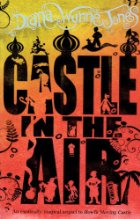

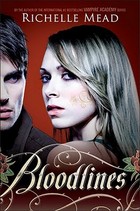
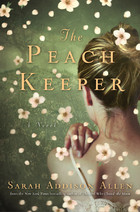
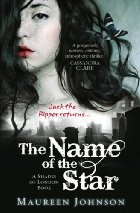
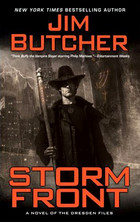


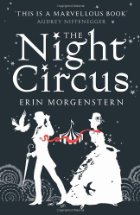








Recent Comments